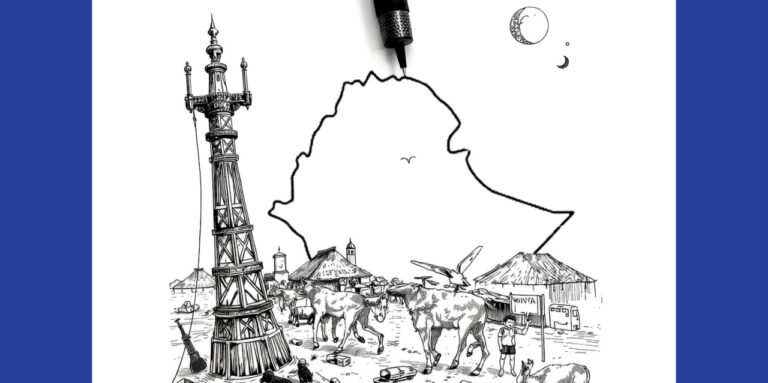At the National Museum of African Art, a Washington, D.C. artist’s work illuminates a gallery room and honors 54 people who died this century
In the center of a meditative gallery, artist Tsedaye Makonnen’s seven light towers—made from mirrored boxes featuring the cutout designs of Ethiopian crosses—serve as monuments to lost Black lives.
Printed on a nearby gallery wall are the names of 54 deceased Black people. Forty-six of them died under tragic, and sometimes violent, circumstances, and the other eight are luminaries such as Toni Morrison, Audre Lorde and Aretha Franklin, whom the artist calls “Black matriarchs.” Under each name is the first name’s given meaning, the person’s age at the time of their death and the date they died.
The tower installation, titled Senait & Nahom | The Peacemaker & The Comforter, bears the names of two people listed on the wall: An Eritrean woman, Senait, and her son, Nahom, migrants who died in a European detention center. The light towers pay tribute to them.
In the mirrors and light, which illuminates the boxes from within, viewers see themselves reflected in the towers, adding to and multiplying the people represented in the artwork. “That was important for me,” Makonnen says, “wanting people to see themselves in the work and also see themselves in the stories of these women and these individuals, and to connect with them in a way that would trigger reverence and respect.”
Her use of mirrors also multiplies the view of the towers and their cross cutouts. “It looks like there are a million Ethiopia Coptic Orthodox crosses and a million light towers,” she says.
Makonnen’s exhibition showcasing these towers, now on display at the Smithsonian’s National Museum of African Art, is called “Sanctuary.” The Ethiopian crosses symbolize eternal life and connection, and given that a sanctuary is a place for refuge and safety and holiness, Makonnen’s artwork provides some semblance of that for the spirits of the fallen and slain after their lives have ended.
The names on the wall, curator Kevin Dumouchelle, says, “reinforce this idea of the work as a sanctuary, as a memorial, a reflective space, where these names are sanctified, remembered and memorialized through the retelling of their names.”
For the exhibition, Dumouchelle put Makonnen’s towers in conversation with other artworks from the museum’s collections, such as actual 15th- to 17th-century metal Ethiopian crosses, traditional Ethiopian paintings of mother and child and contemporary Ethiopian photographs. The inclusion of these pieces connects Makonnen’s work to the historical canon of Ethiopian art and relics.

Makonnen’s heritage and surroundings have also provided essential influences on her art. Makonnen was born in Washington, D.C. to Ethiopian parents and had been enamored with the designs of Ethiopian crosses since childhood. She grew up around Ethiopians who were part of the student movement that fought against the dictatorship of Mengistu Haile Mariam in the 1980s that caused famine, economic decline and war in the country. “I grew up in a political home,” she says. “Politics were discussed; imperialism was always discussed. And just growing up around D.C., protests were always happening.”
Now, activism is an integral component of her artistic practice. While not formally trained in studio art, Makonnen received mentoring from influential artists, including Ghanaian sculptor El Anatsui and American mixed-media sculptor Martha Jackson Jarvis.
In 2018, she was accepted into the District of Columbia Public Library’s Makers-in-Residence program, after Jarvis suggested she apply. And because she had access to a laser cutter at the residency, she came up with the idea to create individual light boxes from acrylic mirrors. During the same year, she conducted an informal residency with Anatsui for three weeks where he showed her how to build a career as an artist—that’s when she designed the light towers.
She also earned a place in the Smithsonian Artist Research Fellowship in 2019, allowing her to study the African art collection, including the Ethiopian crosses and artworks, and be inspired by it. Dumouchelle and a colleague saw Makonnen’s light towers at a gallery in D.C. in 2019 and were taken with them. He thought the strong visuals connected contemporary issues with historic forms. “There was such a really direct application of her studying the Ethiopian Coptic Orthodox crosses, and sort of learning about those forms and applying that to our work, we just thought it told such a wonderful, multilayered, rich story for us that it was a clear winner for us,” he says.
Through the individuals it honors, “Sanctuary” tells the stories of Black heartbreak and history, womanhood and motherhood, all while its towers glow and enliven the darkened space of the exhibition. “My greatest hope is that people will take the time to appreciate the scale of the stories that [Makonnen] is telling here,” Dumouchelle says. He adds that he wanted to create an atmosphere “in which the light of these works, literally and metaphorically, emanates in the space and sort of creates that sort of quiet, reflective environment.”
Ultimately, Makonnen’s work seeks to honor Black lives lost and make those who see it more conscious of themselves and the larger world around them.
“I wanted to make people reflect on their lives because we think we’re so important and actually we’re not,” she says. “There’s so much more going on than just us.”








